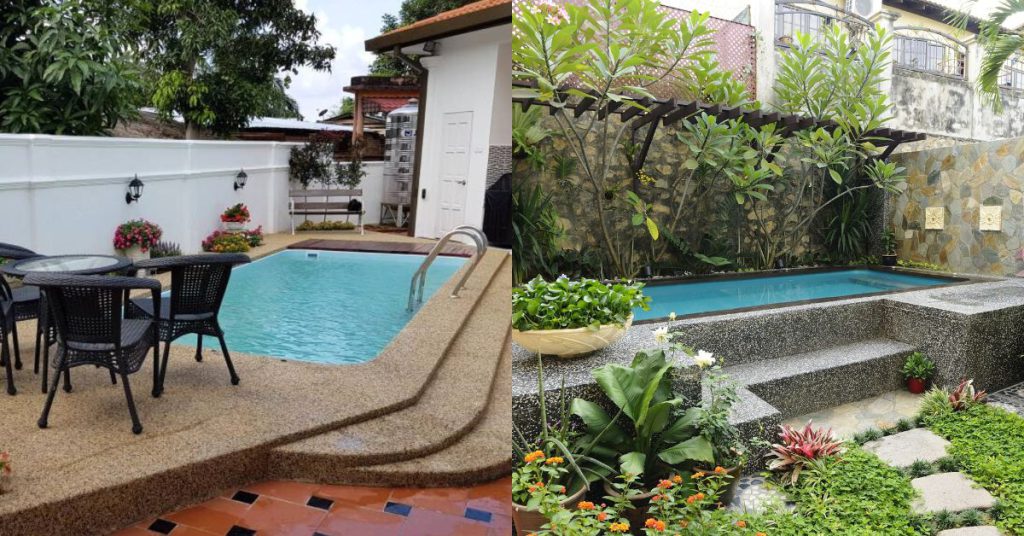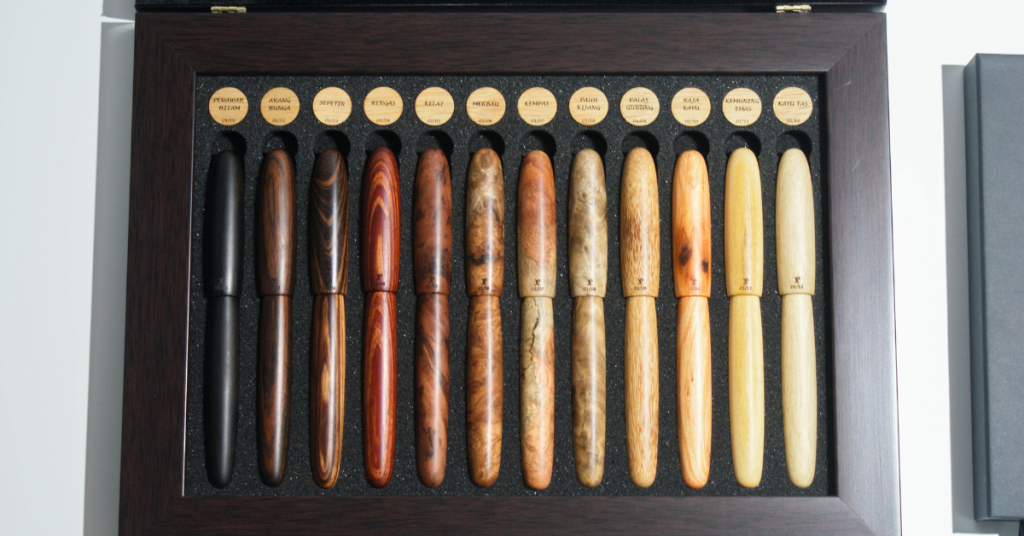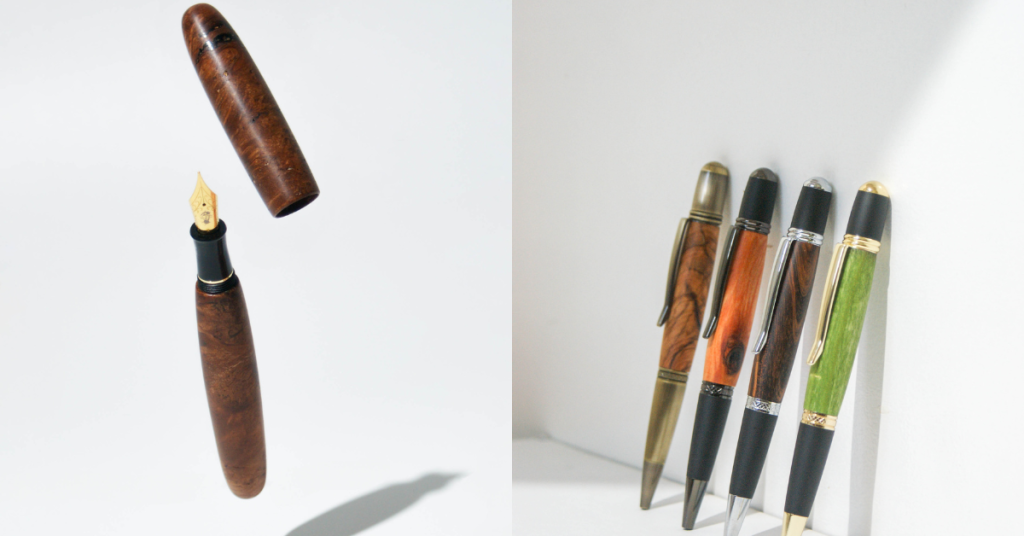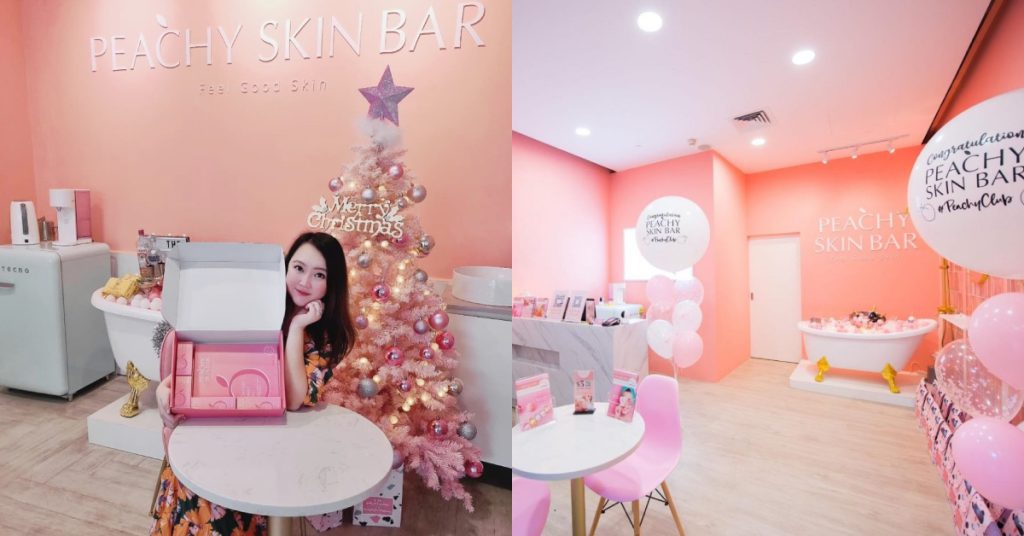Is P2P financing right for you? We unpack the pros & cons every M’sian investor should know.

[This is a sponsored article with CapBay.]
Nowadays, everyone seems to be on the lookout for new ways to make their money work for them. One method that has gained traction in Malaysia in recent years is peer-to-peer (P2P) financing, which lets investors fund SMEs while earning potentially high returns.
Not to be confused with equity crowdfunding, P2P financing provides financing to SMEs, which later translates into investment notes for investors to invest in. In return, investors are repaid with profit.
Several P2P platforms are already in the market, including CapBay, a leading player in Malaysia alongside others like Crowdfundr and Microleap.
As with any investment, it’s essential to weigh the benefits and risks involved. In partnership with CapBay, we’ll break them down in this article, and show how the platform eases the barrier for investors to get started.
Pros of P2P financing
1. High returns for investors
If you’re hoping to earn higher returns than a typical savings account or fixed deposit, P2P financing might fit the bill.
Take CapBay for example: It offers net returns of up to 10% per annum, depending on your investment portfolio and your risk tolerance.
2. Easy to diversify investments
When it comes to managing investment risk, diversification is key and P2P platforms make it easier to spread your funds across various businesses. This way, if one investment note doesn’t perform well, it won’t hit you as hard.

CapBay simplifies this process too with its Auto Invest feature. Using an automated algorithm, this feature spreads your investments based on your risk appetite—Conservative, Moderate, or Aggressive.
There are several factors contributing to the algorithm such as issuer exposure, portfolio size, and cash balance. “Our Auto Invest feature is designed to give a hassle-free investment experience. Once the risk profile is chosen, the investments will run its course, selecting notes that fit the risk profile of our investors,” CapBay’s team shared.
3. High liquidity
Compared to certain traditional investments, P2P financing offers higher liquidity, making it easier to convert the investment back into cash.
Some P2P financing platforms even provide shorter tenures than the industry standard of 12 to 18 months. For example, CapBay offers P2P notes with tenures of up to six months.
This means that investors can enjoy quicker returns on investments, enhancing liquidity and making it easier to reinvest more frequently.
4. Shariah-compliant investment opportunities
If you prefer to invest in Shariah-compliant notes, don’t fret.
There are P2P financing platforms such as CapBay providing Shariah-compliant products to support businesses aligned with Islamic principles.
Since late 2023, the platform has been offering a Shariah-compliant P2P investment option called CapBay P2P Islamic. This option lets you invest in halal businesses while earning competitive returns.
Cons of P2P financing
1. Still new and unregulated in certain regions
With P2P financing being relatively new, it’s understandable to be concerned about platform security and credibility.

In Malaysia, however, P2P platforms like CapBay are regulated by the Securities Commission (SC), who enforce strict guidelines to ensure financial services operating in the country are secure and credible.
“Due to our robust alternative credit data and AI-powered credit scoring, our investors shouldn’t be worried about the funds that were invested in these businesses as we are able to maintain the lowest default rate since inception,” CapBay stated.
2. Capital requirements aren’t the same everywhere
Just like traditional investment opportunities, the capital requirements for P2P financing aren’t fixed across the board. Some platforms like Capsphere require as low as RM50, while others like Alixco require a higher amount of RM200.
For CapBay, the platform has a minimum capital requirement of RM10,000.
It may seem like a large sum, but the team explained that this allows for better diversification when using their Auto Invest feature. With a higher capital, you’re able to reduce the impact of defaults and achieve more stable returns.

3. There could be risks of default
As an investor, you’re rightfully concerned about the risk of default, especially since P2P financing offers investment notes to underserved SMEs.
To mitigate this, platforms like CapBay conduct rigorous risk management and credit assessments before approving businesses for financing.
This is probably how CapBay has maintained the industry’s lowest default rate at 0.3% (as of October 2024), compared to the average rate of 2% to 3%.
If a default happens, CapBay explained that they’ll handle the recovery process with their experienced legal and recovery team. “Any funds recovered will be credited back to investors on a rank pari-passu basis based on the investment allocation amount, net of any recovery costs.”
Did you know: Pari-passu means “equal footing”, and in finance, it means two or more parties that are treated the same in regard to a financial claim or contract. This term can apply to many different areas of finance.
4. Platform fees could lower investment profits
Another downside of P2P investment is platform fees that can eat into your returns. The fees vary across different platforms.
For example, CapBay charges a service fee between 10% and 30% on the gross profits earned by investors.
While this might seem steep at first, it’s not out of reason. For example, CapBay’s service fees are only applied to the profits, not the principal investment. Plus, they don’t charge other fees like sales or annual management fees.
Certain platforms like CapBay and Nusa Kapital also transparently showcase the expected returns after all fees, so you’ll have a clearer idea of your gains.
-//-
Unlike volatile market-linked investments, P2P financing offers expected rates of returns so it’s more predictable. But there is still the risk of defaults, and being a relatively new alternative investment option, regulations may change over time.
If you’re considering getting into P2P financing, CapBay’s platform offers a solid foundation to build on, with flexibility to match your risk preferences.
Whether you’re a new or seasoned investor, CapBay’s tools and support can help you navigate this exciting investment opportunity with confidence. Currently, the platform is offering full service fee rebates for new investors when you sign up from now until March 31, 2025.
Also Read: 5 reasons Tokyo makes an ideal launchpad for M’sian & S’porean startups to scale globally
Featured Image Credit: Vulcan Post
17 yrs in, this M’sian biz continues to disrupt the pool industry with their chlorine-free tech

It was 2007, and the Malaysian real estate landscape was booming. Families were upgrading to semi-detached homes and bungalows, indulging in architectural grandeur.
But there’s a catch—those grand backyards often weren’t big enough for traditional swimming pools. The very lifestyle that should accompany such luxury—a place for fitness, family, and relaxation—was compromised.
That’s when SmartPools, a company that dared to reimagine the pool experience, stepped in. Founded by Faizan Khan, who spent his childhood between the UK and the US and boasts a corporate career across Asia and the West, SmartPools sought to tackle this lifestyle gap.
“People were being denied a space for wellness and memory-making, simply because of space constraints,” Faizan explained.

With a revolutionary idea in mind, SmartPools set out to create a pool that wasn’t just a pool—it was an engineering marvel capable of turning even a compact space into an Olympic-class swimming experience.
They also claim to be Asia’s first natural mineral water pool due to the rarity of chemical-free solutions in the pool industry back then.
Pooling big dreams in small spaces
SmartPools’ flagship technology, the LAPS (Linear Aquatic Propulsion System), redefines what a backyard pool can achieve.
With a current generating a volumetric flow of 30,000 litres per minute, swimmers can enjoy the sensation of an endless pool in an area as compact as a parking bay.
It sounds almost too good to be true—like a tech gimmick that couldn’t possibly replace a “real” swimming pool. But Faizan argues otherwise: “Our pools give you the functionality of an Olympic-sized pool without taking up more space than you’d need for a car.”
The result? A fitness-focused swimming experience that integrates seamlessly into urban living spaces.

And it’s not just about fitness—families can bond over a pool session, all without worrying about the logistical nightmare of traditional pool construction, he said.
Chlorine-free: A wellness revolution
For years, pool owners endured a chlorine-based tyranny: irritated skin, stinging eyes, and brittle hair were unavoidable side effects of keeping pools clean.
“It was a necessary evil,” he admitted, “but we saw an opportunity to disrupt that narrative.”

SmartPools introduced the Nature-Pro, a 100% chlorine-free sanitisation system using photocatalytic oxidation paired with hydrogen peroxide. It’s a mouthful of science, but in essence, it means bacteria and viruses are eradicated without the chemical baggage of chlorine.
A closer look reveals why this matters. While alternatives like saltwater systems claim to be “gentler,” they often merely generate chlorine through different pathways. In saltwater pools, chlorine is produced on-site from sodium chloride, while traditional pools use chlorine tablets or sticks to sanitize the water.
The Nature-Pro sidesteps this entirely, relying on hydrogen peroxide, which breaks down into hydrogen and oxygen—two harmless elements, Faizan said.
He added, “Our pools are not only free from chlorine’s side effects but are also more effective against tough microorganisms like Cryptosporidium and Giardia.”

Plug-and-play pools
Traditional pool construction is a long, disruptive process involving months of digging, concrete curing, and onsite work.
In stark contrast, SmartPools’ Arena Series seems like a modular marvel. Prefabricated in a controlled factory environment, these pools are literally dropped into place using a lorry crane, ready for use in 30-45 days.
This approach not only reduces installation time but also significantly lowers the environmental impact, earning SmartPools a coveted green certification.
“Our plug-and-play model minimises waste, transportation emissions, and the carbon footprint typically associated with pool construction,” Faizan highlighted.

For homeowners, this means less hassle and faster gratification.
More than just a pool
While SmartPools initially targeted landed property homeowners, the company quickly found unexpected markets. For example:
- Homestay operators discovered that pools could command higher rental premiums, making SmartPools a valuable partner.
- Swim academies saw the LAPS system as an ideal training tool for competitive swimmers.
- The healthcare sector recognised its hydrotherapy potential, using SmartPools for rehabilitation and physical therapy.

“Water’s natural hydrostatic pressure offers remarkable muscle tension relief and improved circulation,” Faizan shared. Facilities like Sime Darby Medical Centre have adopted SmartPools for their therapeutic benefits.
But what about the price tag?
At RM50,000 to RM100,000, SmartPools isn’t exactly a budget option. But Faizan insisted that the value far outweighs the cost: “You’re not just buying a pool; you’re investing in wellness, convenience, and a luxurious lifestyle.”
They are also a fibreglass pool provider in Malaysia, Australia, UAE and Japan, according to their website.
Still, it’s fair to wonder if the average Malaysian homeowner is ready to splurge on a pool solution that costs as much as a small car. But considering the rising trend of wellness investments, SmartPools seems well-positioned to tap into an evolving market.

Is this the future of pools?
SmartPools has carved out a niche by challenging traditional norms and offering a genuinely innovative product. Yet, one can’t help but wonder: Is this too much innovation for a market still getting used to basic upgrades like saltwater pools?
The scepticism lingers, but it’s hard to deny the appeal of a product that simplifies pool ownership while elevating its potential.
From the seamless installation process to the chemical-free sanitisation system, SmartPools has turned a luxury item into a practical, eco-friendly investment.
As Faizan puts it, “We’re not just building pools; we’re creating sanctuaries for wellness and family bonding. That’s a vision worth swimming towards.”
With its groundbreaking technology and focus on wellness, SmartPools is making waves in the Malaysian pool industry—one backyard at a time.
- You can learn more about SmartPools here.
- Read other articles we’ve written about Malaysian startups here.
Also Read: Mega sales are coming up in M’sia, here’s how to ensure that your parcels don’t go missing
Featured Image Credit: SmartPools
He turned a woodworking hobby into a M’sian brand for handmade pens that start at RM500

They say the pen is mightier than the sword. And at times, it might just be prettier, too.
Xzotic Pens, for one, creates such pens. A homegrown brand, it produces beautiful personalised, hand-turned writing instruments that feature real wood, many of which are sourced locally.
And the person behind these lovely pens is one Duncan Ross.
A one-man brand to a full-fledged business
When asked about how he found his way to Malaysia, Duncan’s answer was: “An aeroplane.”
Quite the jokester, Duncan actually first made his way to Malaysia in 2006 to visit some friends that had migrated here. After much consideration, he felt drawn to Malaysia and ended up moving to Penang with his family.
18 years later, they’re still here. Currently, they’re on the Malaysia My Second Home (MM2H) visa.
Prior to this move, though, Duncan had been living in South Africa, where he’s from. He had a career in military logistics, but always had an interest in woodworking too.

“I have been passionate about woodwork for over 40 years; I studied it as a subject from primary through high school and have had it as a hobby ever since,” he explained. Moving to Malaysia, he quickly fell in love with the wide variety of local timbers.
While working with wood wasn’t anything new to him, creating hand-turned pens was. It was through a friend’s introduction that he became interested in the craft.
The learning process involved lots of trial and error, bolstered by Duncan’s experiences in the field. But it soon became a passion, as he realised that wood and pens went well together. From soft wood to hard ones, there was a time and place to use it when producing writing instruments.
At first, it was only a hobby, but people started requesting to purchase his creations.
So, Duncan decided to start Xzotic Pens.
Running a business as a creative
Xzotic Pens has actually been on Vulcan Post’s radar for a while, but when we first reached out, Duncan hadn’t officially registered the business just yet.
However, that changed a few years ago, when Duncan decided to incorporate the business.
“When I researched wood pen makers around the world, I noticed a common trend—they were mostly ‘one-man bands,’ with the entire business relying solely on the skills and talents of a single individual,” he explained.
This is something Duncan doesn’t want to follow, though, as he wanted to empower others with his skills. “I believe that if I possess a skill or talent, it’s only right to use it to uplift and enable others to grow.”

However, running a business doesn’t come easy for him. Duncan shared that the journey has been riddled with many learning curves and challenges. Every step forward has been exciting, though, the founder shared.
The price of creativity
Xzotic Pens’ products typically range around RM500, which might be a shocking sum to some.
This is something Duncan faces regularly. While some high-end pen enthusiasts say their pens are way under-priced, many may wonder why anyone would pay RM500 for a pen when they can buy one for RM5.
Seeing both sides, Duncan believes that it’s all a matter of balance. Xzotic Pens strives to price products justly—ensuring the business remains sustainable without overpricing the customer.
“I’ve reached a stage where I no longer feel guilty about charging what I do because I’ve come to understand and embrace that just creativity itself has a cost,” he said.

It’s not just about the materials or even the crafting process. It’s about the time spent selecting the right piece of wood, the hours invested in building up the skill, and developing the overall artistry.
That said, Duncan finds it important to maintain a level of affordability, as he wants his creations in the hands of as many pen enthusiasts and users as possible.
“However, I cannot compromise on profitability—that’s simply non-negotiable,” he determined. “The real challenge lies in striking the right balance: setting a price that is accessible while still honouring the time, skill, and overheads involved in crafting each pen into a finished product.”
Penning down the future
“Do people still use pens?”
This is a question that Duncan gets on the regular.
The answer? Yes.

While the world continues to advance, the founder believes there’ll always be a natural instinct to connect with the human touch.
Furthermore, in the same way people collect and admire vintage cars and watches, there remains a strong appreciation for fine writing instruments like hand-turned fountain pens.
“During our recent pop-up market, we sold more fountain pens than rollerballs, which confirms that there is still a thriving market for these timeless instruments,” Duncan commented.
Additionally, Xzotic Pens’ creations have several unique qualities that make them stand out among other brands, most notably due to the use of wood.
They’re also handcrafted and customisable, quite the rarity in today’s world. The pens are also designed to be ergonomic with a larger diameter.
Touching on his profit margins, Duncan shared that different pen styles come with varying margins. On average, though, they maintain about 30% profit.

Looking ahead, Xzotic Pens aims to secure larger-scale orders, particularly in the corporate gifts sector or bulk consignments.
Up until late last year, the team faced limitations in handling larger orders due to capacity constraints. With the recent acquisition of additional lathe machines and additional manpower, though, production capabilities are now expanded.
Xzotic Pens is also looking at ways to enter Singapore without going through retail outlets, as rental and overheads in Singapore are rather high.
From one craftsman to the next
Running a business and making living as a craftsman is no small feat. While Duncan believes he cannot call himself a well-oiled business machine yet, he had some heartfelt comments to share with others in his position.
“I stepped into business as a total novice, having to learn everything about running a business from scratch,” he said. “I’ve also sought advice from a number of businessmen/women and sifted through what works for me (though not necessarily for others).”

The first step is to find a market gap. Try to create a product that has very little competition from other craftsmen.
Next up, get yourself a bookkeeper and a good company secretary, especially if you’re new to business. “I cannot over-emphasise this point,” Duncan said.
Then, get on social media as fast as you can. No social media presence means no visibility, which in turn means no sales.
“I’ve been told to invest everything into the business, even if my family eats Maggi Mee every night,” he shared. “But I’ve also been told, ‘How can the business survive if you’re dead? You need to eat.’”
The conclusion? You need to find a healthy balance.
Finally, he shared some personal advice.
“If you have a talent or gift in craftsmanship that you’ve been blessed with, don’t keep it to yourself—teach others and equip them too,” he said. “You are blessed so that you can be a blessing.”
The craftsman believes that if you’re good at what you do, you won’t be afraid of someone stealing your ideas. Even with the same recipe, others’ food may not taste as good as yours.
“You will face criticism,” Duncan shared. “But don’t give up.”
After all, he never did, and look where Xzotic Pens is now.
Also Read: Malaysia’s semiconductor industry is ramping up, here are the companies that are hiring now
Featured Image Credit: Xzotic Pens
The beauty industry is “stuck in the 1980s,” so this S’porean started a salon to modernise it

I don’t know about you, but I’ve always felt a sense of dread going to a beauty salon.
Sure, they get the job done, whether it’s a fresh manicure, a rejuvenating facial, or a quick brow fix, but the relentless upselling, hidden charges, and rigid packages often leave me feeling cornered rather than pampered.
Crystal Lee is all too familiar with this pain point. In 2019, the former branding executive took a leap of faith to start Peachy Skin Bar as she sought to “revolutionise” the beauty service experience with greater transparency.
She picked up beauty skills when she was a teenager

“Despite being saturated with competition, I still saw a gap in the market—the local beauty salon industry hadn’t caught up with new-age customer trends and needs,” shared Crystal.
According to the 33-year-old, the beauty industry’s business practices still seemed “mired in the 1980s,” even with “technology having transformed the way they do business.”
“Apps and platforms lure customers in with ridiculously low prices, [but start] hard-selling them once they walk in through the door.”
But part of the reason why Crystal started Peachy Skin Bar was because of her mother, who used to run her own home salon before she decided to retire.
“I grew up in a home salon since I was a child, and I started picking up the skills for facials really early on, occasionally helping my mum over the school holidays since my late teenage years,” she shared in a previous interview with The Vent Machine.
She taught me that beauty services go far beyond just skin care—you also had to provide a safe space for people to unwind from their busy lives. I used to see many of my mum’s clients eagerly look forward to their appointments.
Crystal Lee, founder of Peachy Skin Bar
They’re known for their omakase facials

Peachy Skin Bar specialises in customised facials, with treatments priced between S$120 to S$150, though medical grade treatments can go up to S$500.
They’re most known for their omakase treatment—in Japanese cuisine, omakase means “I’ll leave it up to you,” where customers trust the chef to create a unique dining experience based on their expertise.
Peachy Skin Bar’s omakase treatment follows the same principle, where customers place their trust in the beauty salon’s estheticians to tailor a treatment that best addresses their skin’s individual needs.
The best part about Peachy Skin Bar is the absence of hard-selling or hidden costs—everything is laid out transparently, with all the details easily accessible on their website.
When I visited their salon, I left feeling genuinely satisfied—I wasn’t pressured with sales pitches immediately after my treatment, and I even got to enjoy complimentary champagne after my session, which added a nice touch to the experience.
Although I opted for an à la carte treatment, they also offer a membership for those looking for more regular services.
The business had to stop “95% of their operations” during COVID-19

Crystal self-funded her business, launching Peachy Skin Bar’s first ever outlet at Citygate, but the business was hard hit by the pandemic just four months after its opening.
“Apart from the typical business struggles a startup would face like building up a new brand, we were also thrown into a very uncertain market environment due to COVID-19,” she shared.
During the lockdown, the business had to stop about “95% of their operations,” with their revenues taking a “great hit.”
When business picked up, they launched a second outlet at Seletar Mall in 2021, but as Peachy Skin Bar grappled with manpower shortages and rising rental costs, Crystal decided that the best move was to shut down these outlets and relocate to a more central location in Bugis.
At the same time, they decided to double down on their initiatives to improve their overall customer experience by hiring dedicated “customer happiness executives” to ensure a pleasant environment throughout the entire service journey.
They aim to break even within the next two years

As the business “has seen steady growth” over the past few years, Crystal hopes to achieve positive financial results and break even within the next one to two years.
To date, they’ve built “strong partnerships” with beauty, lifestyle, and luxury brands, including Japanese skincare brand Saborino and homegrown fine jeweller Lee Hwa Jewelry, and have worked to develop and offer perks for the employees of major firms like Google.
Looking forward, Crystal shared that she would be launching a “curated lifestyle brand” featuring a series of take-home skincare products that can help their customers maintain their facial results between salon visits.
“This line can also appeal to new customers who may not have the time or preference for facials, but still want to care for their skin from the comfort of their home,” she added.
- Find out more about Peachy Skin Bar here.
- Read other articles we’ve written about Singaporean startups here.
Also Read: Behind the glam: Meet Arissa Cheo, Yoyo Cao and Lin Ting, the trio behind ROMI Beauty
Featured Image Credit: Peachy Skin Bar